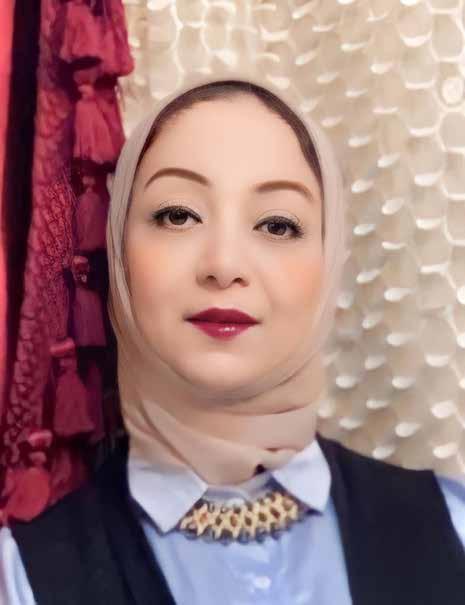
17 minute read
Suq Ukaz*
Thank you, Dr. Salwa Gouda, for gathering twenty-three Arab poets from Egypt, Morocco, Lebanon, Bahrain, Iraq, Yemen, Jordan, and Palestine, and translating their unpublished work into English.
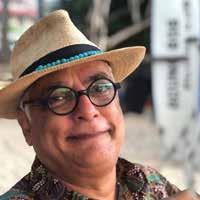
Advertisement
Is poetry lost in translation? Can the essence of its cultural roots be transported into another Word without losing the colour, texture and breath of its soul?
The question is – how else can one read poetry written in a foreign language?
How do poets meet in the warp and weft of cultures if language is the barrier?
This edition of Arab poets in translation is the first in a series of cross-cultural poetry conferences in Word. Live Encounters hopes to publish Irish poets in translation (in Arabic) in the near future.
Our salaams to:
Ahmad Al-Shahawy, Ahmed Al-Muraikhi, Ahmed Nabawi, Aicha Bassry, Ali Al-Shalah, Chawki Bazih, Esraa Al-Nimr, Essam Khalifa, Faris Khader, Gerges Shoukry, Hassan Najmi, Kamal Abdel Hamid, Maha Otoum, Mohamed Miloud Grafi, Muhammad Al-Kafrawi, Muhammad Al-Mutayyam, Musa Hawamdeh, Nagat Ali, Nihad Zaki, Parween Habib, Reem Najmi, Sameh Mahgoub and Samir Darwish.
*Arabs also took part in poetry gatherings in pre-Islamic times. This was known as Suq Ukaz, where poets from different places met to recite their poetry in a cultural festival supported by their rulers. – Dr. Salwa Gouda.
Salwa Gouda is an Egyptian academic at The English Language and Literature Department in Ain-Shams University. She is a PhD holder in English literature and criticism. She received her education at Ain-Shams University and at California State University in San Bernardino. She has published many academic books including Lectures in English Poetry, Introduction to Modern Literary Criticism and others. She also contributed to the translation of The Arab Encyclopedia for Pioneers including poets and their poetry, philosophers, historians and men of letters.
Dr Salwa Gouda Arab Poets in Translation
Poetry is one of the essential resources of the Arabic culture and personality. It is one of the most important facets, which identifies the Arabs as a distinct civilization. From the very earliest stages in the Arabic literary tradition, it has reflected the deepest sense of Arab self-identity, of communal history, and of aspirations for the future. Poetry has never had an effect on a nation as it did on the Arab nation. A single sonnet of praise could raise an entire tribe to the highest level of glory, honor and fame. Whereas a disparaging verse could throw it into the abyss of disgrace and shame. It has the power to ignite wars and to send armies to the battlefields. Within this tradition, the role of the poet has been of major significance. They are honored and are held in high esteem. The kings and caliphs used to lavish them with gifts and titles. Many of them had their own poets who chronicled their achievements. The Arabs also took part in poetry gatherings in preIslamic times. This was known as Suq Ukaz, where poets from different places met to recite their poetry in a cultural festival supported by their rulers.
In the Arab world, poetry is heard every day and everywhere. Vernacular poetry, classical poetry, prose poetry are recited at weddings, funerals, schools, and other social gatherings. Reading Arabic poetry is like reading an alternative history of love, exile, death, nostalgia, longing, grief, mystery; things that have been carried around for centuries and which are not culture-specific. It addresses every person on earth regardless of all kinds of distinctions. The beauty of Arabic poetry is also mirrored in the beauty of the structure, meanings and melody. Like all creative arts, Arabic poetry has been influenced by the changes that have occurred in the world, as it receives them, interacts with them, and develops its cognitive and formal tools as a result.
Arabic poetry is also affected by the translations of world poetry, which had started early a century and half ago. As reading poetry in translation will not only allow us to find affinities with poets internationally, but also surreptitiously influence our writing, shaping us into more informed, more ethical, and more connected writers. Translation also introduces semantic and aesthetic components that has renewed the Arabic poetic discourse, which emanated from the employment of myths, symbols, places, masks and cosmic philosophical opinions. Arabic poetry has been influenced by the translations of the poetry of Shakespeare, T.S. Eliot, Ezra Pound, Emily Dickenson, Ted Hughes, Sylvia Plath, Walt Whitman, Arthur Rimbaud, Baudelaire, Saint-John Perse, Kavafis and others.
Another important issue to be mentioned is that translation of poetry is not an easy task as the translator should be aware of the source language as well as the target language’s culture, syntax, grammar and poetic tradition. The translator must know the poetic structure, which makes poetry’s sentences and its lines stand as a whole. As the components, which constitute the aesthetic values of a poem have a meaning only when they are correlated with other types of meanings in the text. This is the reason behind the early debates about the translatability and untranslability of poetry. In my opinion, it is possible and needed. We, as humans belonging to one human civilization and different cultures need to know and read each other for the sake of peace, tolerance, mutual understanding, and acceptance.
Depending on what I mentioned before about the importance and the influence of translation, I have a tendency to continue bringing Arabic poetry into international recognition by translating it into English. Translation brings the poem’s assertion from its current micro language to the macro world stage. In addition, poetry translation can offer countless benefits to the recipient culture.
This special edition from Live Encounters Poetry and Writing is devoted to Arabic poetry in translation as it includes the translated poetry of twenty-three prestigious poets from different Arab countries including Egypt, Morocco, Lebanon, Bahrain, Iraq, Yemen, Jordan, and Palestine who put their insights, hearts, souls, and individual music on wellarticulated poetic forms. They tackle universal cosmic themes of loss, disillusionment, collectivism, individualism and societal changes with an apparent Sufi world vision. The goal is to continue our task of translating Arabic poetry, as we need Arabic poetry to be read and recognized. Finally, special thanks is due to Mark Ulyseas of Live Encounters for his belief in the power of poetry. My thanks extend to the great Egyptian poet Ahmad Al-Shahawy for his support of the idea and his constant encouragement.
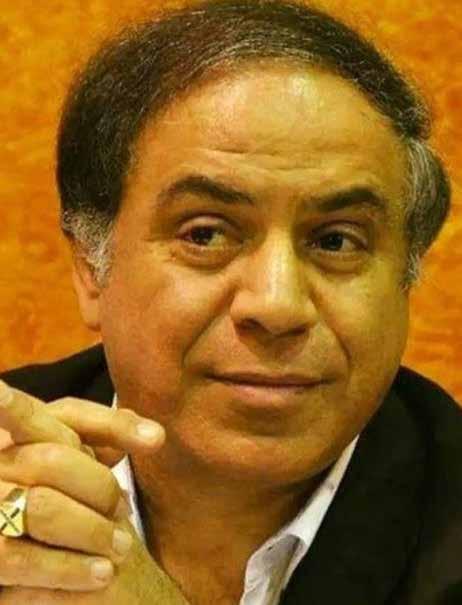
Ahmad Al-Shahawy is an Egyptian poet and author of more than 20 books and poetry collections. His poems have been translated into many languages including French, Italian, English, Turkish and Spanish. He participated in many international poetry festivals organized in many countries of the world. Al-Shahawy was also the recipient of UNESCO literature award in 1995, and Cavafy Poetry award in 1998. Four of his literary works were nominated in the long list of the Sheikh Zayed Book Award in the branch of literature including his novel The Magician’s Hijab, 2022. Also, Lavender Ink / Diálogos published Al-Shahawy’s poetry anthology entitled Alone by the Nile,2023.
What if I died alone at night?
When I enter my house
No name there will be waiting at the door
Neither for me nor for my other many faces
Nor will the cats of the past come Back to check on me
There is nothing but a high pressure Sitting on a chair
And an anxiety rocking on a second chair
And at most dull poetry.
From now on, the likes of me have to control themselves
So that the head does not explode
From questions
And in order not to clot my brain
In the moment when doubt
Flows into the sea of mistrust
And lest the poet’s brain goes Into stroke
And the blood balls do not pour On the rock of the Nile Sea.
What if I died alone at night?
Who will shroud my language?
Who will stop the tears of the awaking
Books on my head?
Who will indoctrinate talqeen* my poetry
The testimony that I was without trees
Growing in my palms?
What
if I died alone at night? contd...
What if the stress hit my brain? Will this disturb the balance of the earth? Will the birds who lived on the rhythm Of my words die?
What if death dared to sit on The edge of my chair And wrote me a merciless death speech With no deferment?
Who will lay out the divine tablet on the chest? Who will arrange my journey For eternal oblivion?
Nothing but two eyes from the shadow
Nothing but ruins from the scents Of memories
Nothing but insomnia deaf to the sound
Of my sleep
Nothing but the wind carrying No hope of a cure for high blood pressure.
Will the poet have time To finish his writing? Or to end the biography Of the cycle of silkworms?
I only find crosses carrying The corpses of words
And dying flowers
And butterflies going to the way of death And women who had returned to enter The shrouds alone
Adjusting the rhythm on the cadence of the spelled blood
Nothing but blood trees
I sit under continuously dropping fruits
As if I were Adam leaving her Eden
Or let’s say: as if I were Abel without a woman
Kindling her flower before the blood flows.
Who will hide from the hands of men
My treasury of secrets?
My head is compressed
My heart is more stressed
And my sky is a cascade of sentences with Clipped verbs
And absent indexes of nouns
When I enter my house
Ants walk in my brain. Fire runs below me
And a rusty saw chops
The tissues in my brain.
The night strips me of my medals
I remain in the wandering like an isolated King robbed of grammar
And walking naked without secrets from my fantasy
There is no power and no strength in me
Except two carats of despair
And an acre of trees of the two brothers’ blood
And a basket filled with joining words
Which I am not good at aptly exploiting
In a text.
* Talqeen: in Islam is performed for those who are dying to ensure they are spiritually ready for the journey into death.
Open Conclusion
For a woman to get off in the middle of the road
Means
Do not blame
Do not strain your soul
That the star will fall in its mirror
That a Passage opened for others
That you see a black face in your mirror
That you do not ask Jesus to revive your dead
That you do not weave a secret from flimsy thread
That you do not beg a memory out of forgetfulness
That you do not light a fire in the desert of autumn
That you do not milk a bull’s cloud in a dead night
That you do not write in meter and retire from music
That you do not fall like a wise man
That you do not pray to God to be saved from the shining of the divine union
That you do not climb up a mulberry tree to cover a woman’s nakedness with a leaf
That you do not dig into the language further than the silence digs
That you do not fancy a moon that towers over you
It is actually a drop of blood
That you do not enslave a woman’s name in a text you write
To be immortalized
That you do not be ashamed of being defeated in the grass
As a hollow cloud
That you do not open a blind door
That you do not consume ink in praise of a woman
Who picks your mistakes as grapes for an open Conclusion.
Tattoos in my Brain
I hate tattoos
(What is apparent and what is hidden)
But when I wake up
I saw my head full of tattoos
I thought it was ephemeral drawings
But, it is an enslaving snake
It commands and terminates
It eats from my food
It steals me every second
It strips the soul of its flight
It holds me in one direction
It vanquishes and subdues
It insinuates me for wrong acts
Till I became a guard of doubt
In my country
Till I doubted my fingers
When it plays in the void
And it became a stranger to me.
I came near my right hand
And I saw myself writing history
In a blink of my eyelids
Needles are in my head cells
Like rain falling
And the lightning tattooed in it
I did not ask for an amendment
I did not go to specific decorations
A mercenary army attacked me
I do not know where it came from continued overleaf...
Tattoos in my Brain contd...
What I know is that I tattooed my Sins on my palm
A tattoo that does not resemble any other
Lest I forget that I committed a mistake
And that I have darkened myself so much
I-the one- who despaired Satan
And when he returned as A night woodcutter
The mind was like a tombstone
He controlled me
And in my silence I write
My love for the world.
I begged the ants to intercede for me
And I am the one who lived to build one House after another for them
I do not treat myself with tattoos
Like my ancestors
And I don’t need magic
Because I’m looking for me
In an extinct volcano
And I am not the slave who runs Away from those who tattooed his face
But I became a university of slaves
In a name for me.
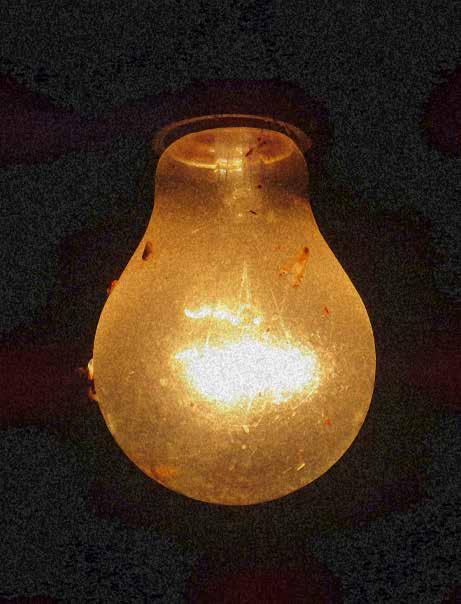
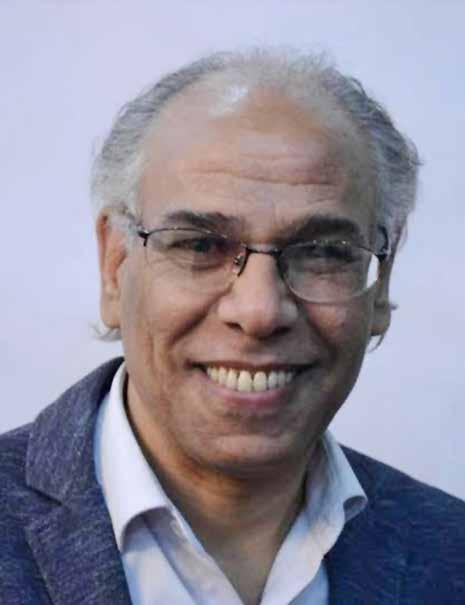
Ahmed Al-Muraikhi is an Egyptian poet. He works as a Deputy Editor-in-Chief of Radio and Television Magazine. He is also Former Editor-in-Chief of Poetry Magazine. He has published three poetry collections entitled: Against My Will-2008, Movements of Teenagers-2012, and What My Hand Did-2015
Memorial Service
The peasants returned from the field with wheat
The workers returned from the mountain carrying stones
And while mothers made bread
The engineers built the walls!
It is okay, dad
You have been merciful to us
We decorated the walls with marble
And we inlaid the marble with the alabaster that you love
The calligrapher - my brother - engraved the words you love
And the painter - my brother - painted pictures of your loved one
My sister made all kinds of sweets
And we deposited the small details of the system that you love.
The building is complete
The loaves my mother baked were all done
The shrouds weep you in the washroom
And I supervised it myself
The cemetery is ready, Dad
And the dead are ready.
Ahmed Al-Ward
He did not inherit the name
And he does not have a palace like Al-Khouli’s palace. The house was of raw bricks
As it rains, he rolls over in fear
And he is covered with the smell of silt at the sound of thunder
The mud was pure, the people for people, the village far away
Transportation to the city is riding on donkeys and camels
And at the station he greets the returnees cordially; “a rose in each hand”
Wherever they pass the house, they spray love to the ground
Roses were growing on the edges of the canals
Al-Khawli calls it the devil’s plant, and people call it the herb.
Ahmed Al-Ward died.
So they built a house for him, and whenever they passed by, they stopped. They tell their children how it was.
Before this morning
Like a hawk looking at its young from a distance
It happened before this morning that a mother stood in the doorway of the house
She contemplates her children as they play
They were building a village
They make houses out of dust, and young sheep out of palm heart
The houses were real, the sheep too
The grass is growing in the nearby field
And at night the young returns with a ram in their hand
They hang food for it on the windows
They call him by his name
When it leaps, they rejoice with ecstasy
They clap for what their little hands have made
And the mother gathers their day at the end
Then she puts it on a bed of palm leaves
And soars like a hawk looking in the distance
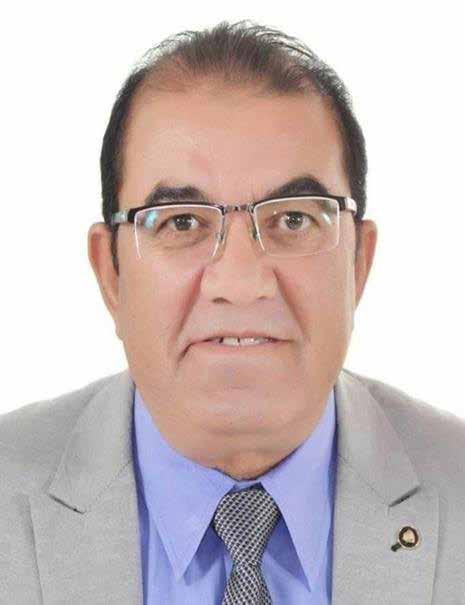
Ahmed Nabawi is a contemporary Egyptian poet and academic. He deals with humanitarian themes in his poetry. His poetic career began early in the nineties. He has five collections of poetry: Testimony of Love, Wounds Have Tributaries, Flames of Questions, Scenes from the Refugee Camp and The Flourishment of Colors. Two collections in print entitled An Ant Said and The Doors. In addition, he has a collection of critical books, including The Poet’s Culture and Significance Production, The Poetics of Small Details, The Contemplative Tendency in Andalusian Poetry, and The Heritage Tributaries in Andalusian Poetry.
Consolation
I want a window
Wider than my eyes
And a headphone
Finer than my ears
I want
Instead of my two arms, two large wings
Too long nose
Two-minute legs
Train myself
To listen with my heart
And see with my ears
I like being led by my wild mind
Until the end of the journey
I am afraid he will abandon me
And leave me paralyzed
Leaning on the void
I do not like to die protruding eyes
Opening my mouth
Oh, my God
Even these
I will not be able to control
Completely
I also could not control my appearance
When I come to life
Exit door
He said to me: Then you have to Wear thick dark clothes
And two pairs of long stockings And you should Take shelter in a cornerstone
Close to the door
As your legs no longer Bear the weight of those years
That accumulated over your skinny body * But I do not like thick dark clothes
And I do not like that cornerstone
Near the door
I love
To ascend the stairs with musical lightness
To read the house room by room
To be assured
That my love
Who came out years ago
Her scent still permeated the place
And its small details
Is still alive
And she blames me if I am late
So I kiss her apologetically
When I wipe her hair
And wipe a tear, without her seeing it
I love
To go into her room
On my own
Twice every day
And open her cupboard And hug her dresses for a long time A dress by dress
Until the nostalgia that never Quenches is satisfied And I always love To walk in the open plain To dance And sing
When I embrace people In the wide garden * So what happens If it is time to go out When I go up the stairs?! Or
When I embrace my sweetheart’s dresses Or
While I am walking in the open plain Or even
When I dance and sing Is not the exit movement one?!
Two refugees
An old man and an elderly woman
Rely on unfair time
Rely on their fading youth
There was nothing left of their lives
Except a little
They cultivate life with love
In the span of a long life
And they built a small house
In a moment
Volcanoes of cannon
And stray missiles blew up
The long life plant *
An old man and an elderly woman
In the midst of the ruins
- Distraught -
They tremble
They do not utter a word
They do not cry
Leaning on a cloudy fate
Leaning on the open
Their eyes stared
And went backwards
The soul is neither satisfied
Nor reassured *
An old man and an elderly woman
Towards the camp
They are crawling
Towards the camp
In a fugue
They lean on pure words
They lean on the sky
They do not look ahead
They do not look back
In a tent
- In the middle of the campThey sit
She does not move
She comes near her beloved And enters into fugue
And remains from silence
To silence
And messing with her fingertips in the dust
- He does not move a finger
He comes near his beloved And he enters into fugue And he remains from silence
To silence
And messing with his fingertips in the dust
* continued overleaf...
Two refugees contd...
At night
Where the wind is hungry
And the groaning of wounds
And the snow is falling
And the stray missiles
And the cannons - without heed - wail
She gave him the bread of The Relief
- And the bereavement looms in her eyes -
He casted it aside
And stretched out on her side... and fell asleep
Next to him
She threw her body... and fell asleep
***
In the morning
The Relief announced
- In the crowd of arrivals -
About a tent
In its hollow
The whining fell silent
And The Relief workers dug a hole
To include
Two dead bodies:
An old man
And an elderly lady ***
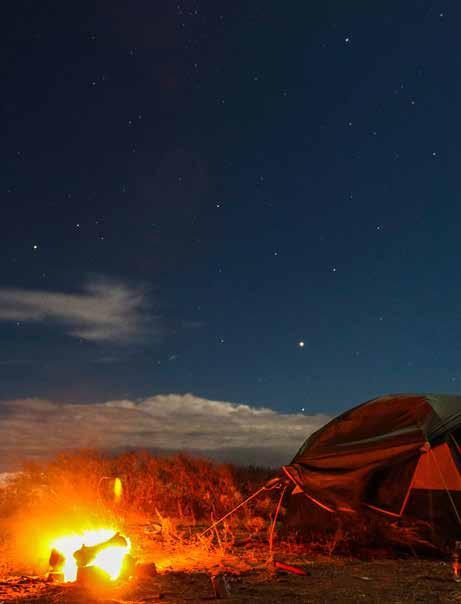
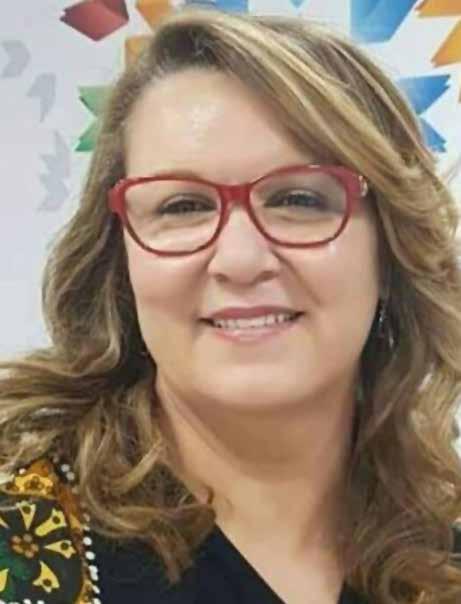
Aicha Bassry is a poet, novelist and storyteller. She published many novels and poetry collections. She won the International Prize for the novel, Kateb Yassin (Algeria 2016), for the novel Greta Garbo’s Granddaughters, the Simone Landry Prize for Women’s Poetry (Paris 2017) for her Diwan (The Bathers in Thirst), and the Prize for Best Arabic Novel for the year 2018 (Sharjah Exhibition - United Arab Emirates) for the novel Life without me. Her books have been translated into English, French, Spanish, Italian and Turkish. She participated in many Arab and international cultural events (book fairs, festivals and conferences.
Black Poem
About my lips
I wiped the last kiss
Off my shoulders
I shook the farewell pat
I uttered flowery words that I swallowed foolishly
And for not crying when I remember
I recalled all his offenses:
His look at a woman who passed by
A stain of betrayal on his shirt
His break of an old date
Spinning poems, he wrote for bed-passers
And for a complete heal of him
I buried every word that reminded me of him
In a black poem
In the color of this poem
The mythology of the body
If I was born with the intuition of a wolf -As I was accused-
And I pretended that the wolf ate me
Thus, I would not be eaten twice
If I shouted:
God, my sins are not what I have committed That serpent confused my desires,
Thus, I would not be stung from the hole twice
If I were to slander Adam
And with an accusing finger, I pointed out:
This is your creature, Lord, and he ate the apple
Thus, I were not be thrown on the ground, a body with two hemorrhages, Uterine bleeding and heart bleeding
If I disbelieve in myself
And you gave birth to me in the basin of temptation
Thus, I would be crowned queen of the kingdom of Eros. And owned my body
If I had not taken off the mulberry leaf from me
- My only cover -
And threw it in the face of the devil
Thus, I would be the tree of the promised paradise
If I were more cunning and careful
Thus, I would not gave birth to a man from my womb to enslave me
If I were Atum I would not have created anyone but me
Thus, there was no first woman
Nor a first man
Nor there was betrayal from eternity
If you were born on cunning
- As stigmatized -
Thus, I would have torn the shirt of my beloved From kisses
And in love, believe me
If I stood at the gates of death
And with the boldness of the one who goes back to him
I cursed Hades and all his names
Thus, I would not die between two lives
Was I really “me”
When I was not?
What does life bestow upon me?
Of my language
I made and lived lives
I built a house of words and inhabited it
I drew a sea and sailed
I set a sky and I flew
I fantasized about a man and fell in love with him
From my ashes, I grew a nursery for roses
From cuts in the palm
I released a flock of butterflies
From the womb of the snow, I ignited the meteors of desire
I explained myself to myself
And I called myself the riddle of names
Even my body made my death from its cells
So what does life bestow upon me?
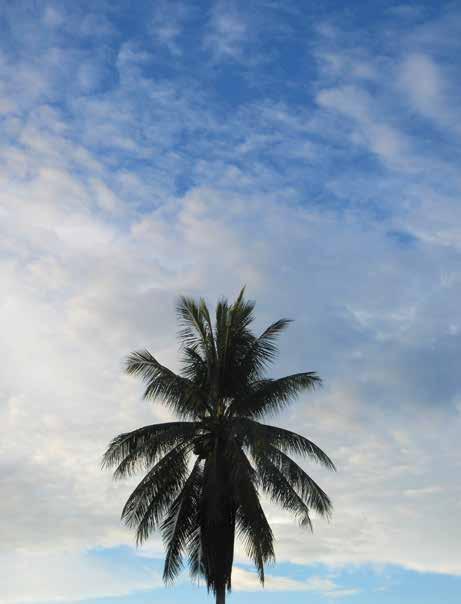
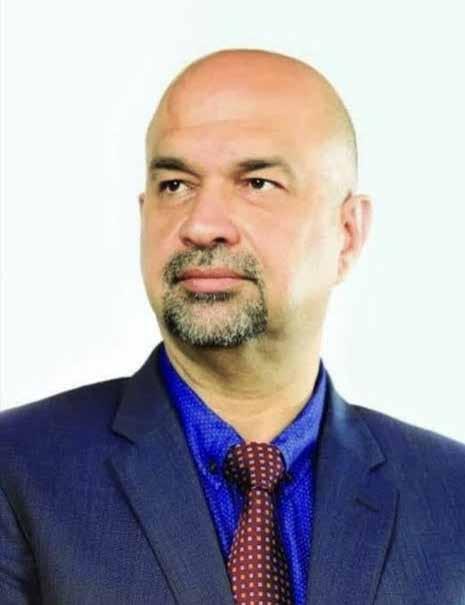
Ali Al-Shalah (1965) born in Babylon, Iraq. He obtained a BA in Literature from College of Arts, University of Baghdad, 1987 and MA in Modern Literature, Yarmouk University, Jordan, 1996. He also obtained PhD in Philosophy and History, University of Bern, Switzerland, 2007. He has published five poetry collections and five books on criticism. He was the Founder and President of many cultural institutions, events and festivals including the following: The Founder and President of the Swiss Arab Cultural Center in 1995 and Al-Mutanabbi International Cultural Festival / Switzerland 2000, President of Babel House for Cultures, Arts and Media, with two branches in Baghdad and Babylon, 2003, Founder and President of the Babylon Festival for International Cultures and Arts 2010, Chairman of the Culture and Media Committee in the Iraqi Parliament 2010 and the Chairman of the Board of Trustees and President of the Iraqi Media Network 2014-2018.



